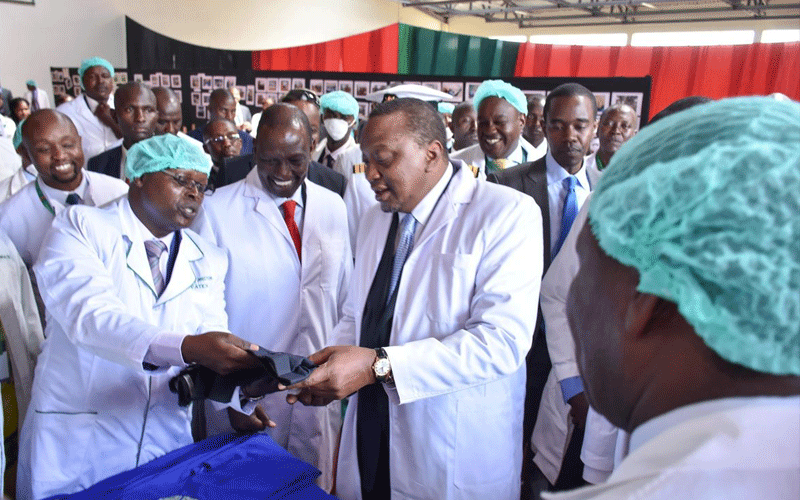Industrialists outline measures to boost productivity, exports

Lewis Njoka @LewisNjoka
Kenyan manufacturers have blamed unpredictable regulatory climate for lack of competitiveness and low productivity in the sector.
Also identified as hindering the industry as it battles to remain competitive in the wake of intense competition from cheap Asian imports are regulatory overreach and unpredicatble levies and charges.
To improve competitiveness, the manufacturers yesterday proposed a raft of measures including development of cohesive policies to enhance effective policy execution, enhancing access to both domestic and export markets and government-driven SME development.
Other measures are improving industrial sustainability and resilience by supporting digitisation in manufacturing, helping build needed skills, and supporting a circular economy which emphasizes on reduction of waste.
Total exports
Kenya Association of Manufacturers Chairman Mucai Kunyiha said contribution of the sector to the gross domestic product (GDP) and to total exports have been declining since 2012 and added that this can be reversed by improving competitiveness.
Manufactured exports as a share of manufacturing output has declined from 37 per cent in 2012 to 23 per cent in 2019, he said while speaking during an online forum yesterday.
Similarly, the sector’s GDP contribution has been declining to stand at 7.5 per cent last year.
“Being competitive has the potential to reverse this trend,” said Kunyiha.
Earlier this year, he added Kam launched its Manufacturing Priority Agenda 2020, that had a focus on immediate action plans that will yield tangible results in the short term, to establish a competitive manufacturing-led economy for job and wealth creation.
Speaking at the forum, United Nations Industrial Development Organisation (Unido) Kenya Country Director, Kawira Bucyana, said the index would provide information on strengths and weaknesses of the sector, crucial information to policy makers.
“By promoting competitiveness, it is possible to maximise economic efficiency in allocation of scarce resources while generating prosperity,” she said.
The latest Unido Competitive Industrial Performance (CIP) Index, shows that Kenya ranks position 115, well behind South Africa and Egypt which rank position 52 and 64, respectively.
In East Africa, however, Kenya ranks better in competitiveness than its neighbours, Tanzania and Uganda which ranks position 123 and 128 respectively.
Kunyiha said while Kenya ranks top position within EAC countries, a lot needs to be done in order to be competitive at global scale.
“It is my hope that the lessons to be learnt from the CIP Index report will be put into practice by both the government and the private sector to spur the competitiveness of the manufacturing sector and aid its growth and development,” he added.
President Uhuru Kenyatta has repeatedly emphasised his commitment to spearheading an industrial development agenda that will accelerate the country’s economic growth.
While taking office in 2013, he stated that he will focus on local production-oriented industrial revolution that will create a strong manufacturing base.
Leading competitors
Outside Africa, China and India are the leading competitors for Kenya in both the domestic and regional market for manufacturers and were ranked position two and 42, respectively.
Germany is the most competitive country globally. The CIP report is a biennial report by Unido which benchmarks the ability of countries to produce and export manufactured goods competitively. This year’s report looked at 152 countries.















